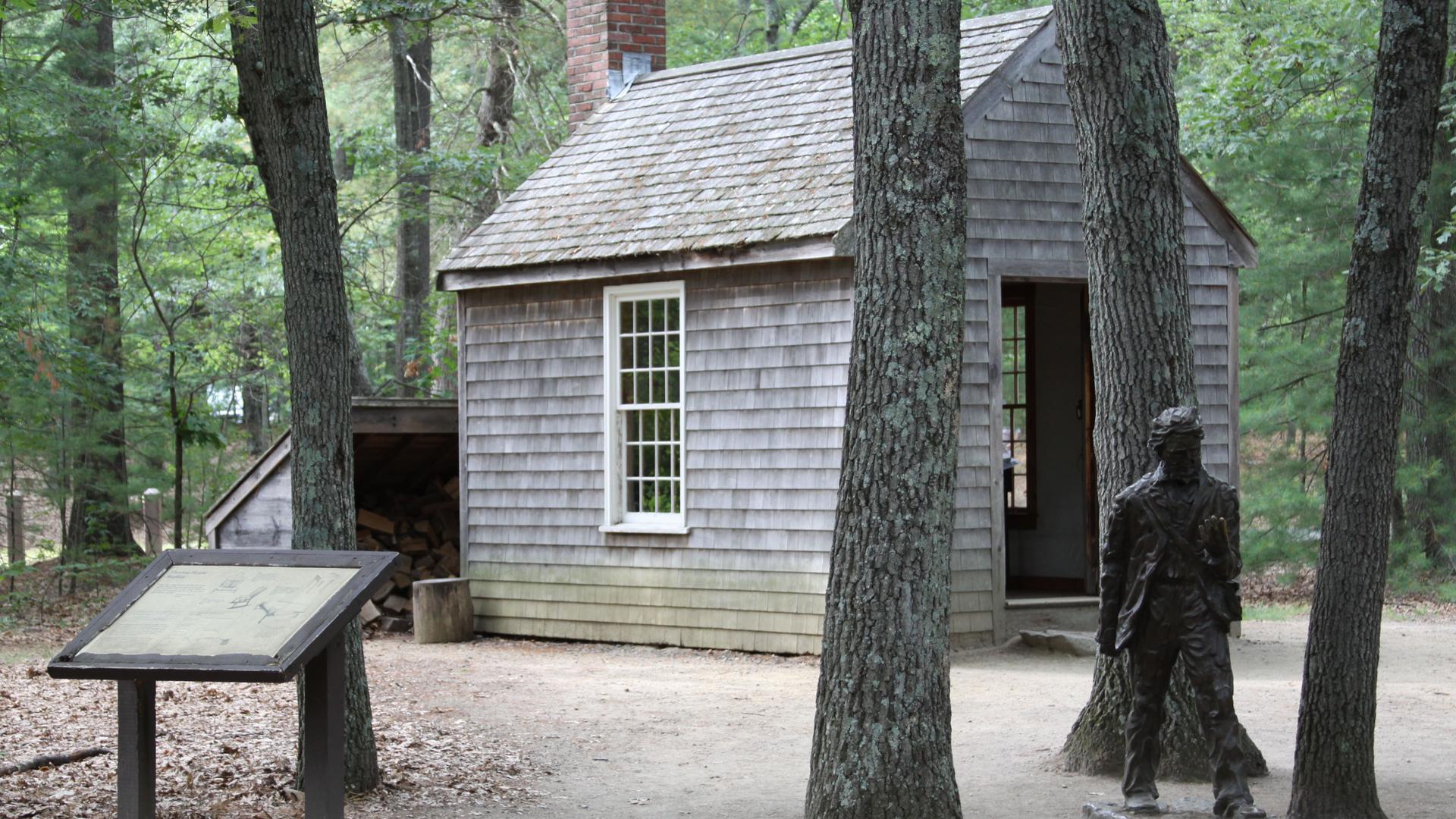Replica of Henry David Thoreau's cabin at Walden Pond in Concord, Massachusetts.
Alireza Taghdarreh never forgets the first time he heard about Henry David Thoreau.
It was back in 1982, in Iran.
"I [heard it] on a $1 pocket radio. … It said 'the man who goes alone can start today but he who travels with another must wait until that other is ready,'" he recalls.
His reaction to the words could be described as love at first sound.
They sounded just like lines from the beloved Iranian poets his grandfather constantly recited to him.
And so he set out on a journey. He wanted to learn as much as he could about Thoreau.
But first, he had to improve his English.
"I didn't have easy access to sources for studying English," he said in a speech at the Walden Woods Project. "For a long time, I studied English through old newspapers and magazines and whatever film I could find. I was just serious and persistent until the day I found access to the Internet," he added.
The Internet was a game changer for Alireza. Back in 1996, Kirk McElhearn started a listserv that let Thoreau scholars and enthusiasts connect and exchange ideas.
"When Ali joined the group, it wasn't very easy for him because Internet access was very limited," he says. "He started out just asking some simple questions and at some point he explained that he was going to translate it into Farsi, which just sounded like such a wonderful idea."
McElhearn says Alireza would ask questions about what words or expressions meant. He'd ask about the many complicated puns Thoreau used in Walden.
"You know, this is language from the middle of the 19th century, which even for modern Americans isn't always easy," says McElhearn.
Over the years, the group became a gateway for Alireza to get to know Thoreau scholars in the US and around the world.
And gradually, it became about more than Thoreau and translation of a book. It became a way to get to know the people on the other side of the computer screen. It turned into a cultural exchange.
"I know very little about Iran," McElhearn says, "I did have a very good friend when I was a teenager who was from Iran, but other than pistachios, I didn't know much about the country."
Another man Alireza got to know pretty well is Jeffrey S. Cramer, a Thoreau scholar who edited the version of 'Walden' that Alireza ended up translating. Cramer, too, says conversations with Alireza were "a breaking of the walls."
"We think we know who a person is or what a culture is. Ali totally changed that for me," he says.
He says they even got to know each other's family.
"He's gotten to know my children, my mother-in-law, we have Skyped with him, with his family, with his daughters, his wife," he says.
Finally, the virtual became reality when earlier this month Alireza visited the US for the first time. Those friends he had made over the Internet helped him get a visa and even chipped in to cover his travel expenses.
After years of imagining Thoreau's world, Alireza was able to see, touch, smell and feel it for himself. He beamed with happiness as he spoke at the Walden Woods Project.
Next, Alireza plans to translate Thoreau's other works into Farsi. And after that, he'll focus on Emily Dickinson.
He hopes that by making those works available in his native language, he'll create a bridge that connects people from two very different and often misunderstood worlds.
"It's not just literature. It's the connection that this literary work reflects to my people. It shows that friendship is possible," he says.
Every day, reporters and producers at The World are hard at work bringing you human-centered news from across the globe. But we can’t do it without you. We need your support to ensure we can continue this work for another year.
Make a gift today, and you’ll help us unlock a matching gift of $67,000!
